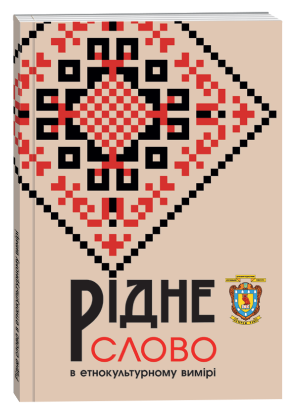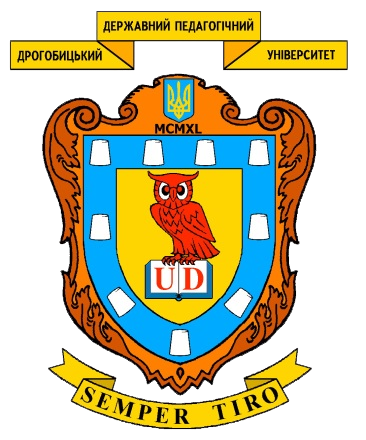PHRASEOLOGEM “WOLF” IN THE STRUCTURE OF PHRASEOLOGICAL UNITS OF THE UKRAINIAN AND POLISH LANGUAGES: ETHNO-CULTURAL ASPECT
DOI:
https://doi.org/10.24919/2518-1602.2023.19Keywords:
phraseological units, phraseological fund, phraseological system, comparative aspect, national and cultural specificity, ethnoculture, semantics, connotative meaningAbstract
The established expressions of the Ukrainian and Polish languages with the phraseological unit “wolf” in the ethnocultural aspect has been analyzed in the article; the functioning of these unsts indicates the ethnic closeness of both peoples, the connection with the global cultural processes of which they are a part; it has been stated that the zonymic component in the phraseological unit is characterized by national and cultural specificity; it has been emphasized that the sources of nationally specific features of phraseological units with a zoonym component are the differences of the animal world, the intellectual and moral qualities of a person, the nature of his labor activity, and the historical conditions of language formation; it has been established that among speakers of the Ukrainian and Polish languages fixed expressions with the phraseological unit “wolf” verbalize mainly negative semantics – hostility, greed, cruelty, anger, bloodthirstiness, hypocrisy, treachery; it has been found that the same phenomena of reality in two different languages have similar and different national and cultural characteristics. The purpose of the article is to reveal the structural and semantic features of phraseological units with the lexeme-component wolf, selected from modern phraseological dictionaries of the Ukrainian and Polish languages and to determine their role in expressing the ethnoculture of a particular people. A detailed structural-semantic study of the established expressions of the Ukrainian and Polish languages in the ethnocultural aspect clearly testifies that the phraseological unit wolf evokes mainly negative images in the minds of a certain people and is associated with cruelty, greed, gluttony, hypocrisy, anger. The common and distinctive features in the structures of phraseological units of both languages is determined not by the properties of animals, but by their stay in the environment of a particular people, similarities and differences of national-historical conditions of life, mental, psychological and social features characteristic of a certain people and culture in general. The analysis of established expressions with the phraseological unit wolf in both studied languages indicates an interesting prospect for further research of their internal form and connotative meanings in a comparative aspect in other languages (Ukrainian, English, German, French).
References
Аnusiewicz, J. (1995). Językowo-kulturowe definicje znaczeń wyrażeń językowych. Lingwistyka kulturowa. Zarys problematyki. Wrocław: Wydawnictwo Uniwersytetu Wrocławskiego.
Башук, Н. (2020). Фразеологізми із зоонімічним компонентом в німецькій та українській мовних картинах світу. Наукові записки Національного університету «Острозька академія». Серія: «Філологія», 9 (77), 200–203.
Білоноженко, В. (2013). Фразеологічний словник української мови. Т. 1.
Жайворонок, В. (2006). Знаки української етнокультури.
Коцура, В., Потапенко, В., Куйбіда, В. (2015). Енциклопедичний словник символів культури України.
Левченко, О. (2005). Фразеологічна символіка: лінгвокультурологічний аспект: монографія.
Мойсюк, В., Луцик, Н. (2021). Зоосемічний та флоросемічний символи як компоненти фразеологічних одиниць французької мови. Розвиток сучасної освіти і науки: результати, проблеми, перспективи, V: Динаміка наукових та освітніх досліджень в умовах пандемії: колективна монографія. 159–168.
Онуфрійчук, Г. (2016). Лінгвокультурологічний потенціал української етнофразеології: асоціативне поле «Людина в колі інших істот» (Дис. канд. філол. наук). Київ.
Пасюрківська, М. (2009). Зоонімічна лексика в польській фразеології: склад, семантика, функції. (Автореферат канд. філол. наук). Київ.
Пасюрківська, М. (2005). Образ вовка у польській та українській фразеології: етнокультурний і лінгвістичний аспекти. Вісник Київського національного університету імені Тараса Шевченка. Літературознавство. Мовознавство. Фольклористика, 16, 29–33.
Петришин, М. (2014). Фразеологізми з компонентом-зоонімом у латинській мові. Науковий вісник Чернівецького університету. Германська філологія, 692–693, 161–165.
Семенова, О. (2019). Семантико-прагматичні особливості зоофразеологізмів. Закарпатські філологічні студії, 7, І, 112–115.
Skorupka, S. (1996). Słownik frazeologiczny języka polskiego. T. 1.
Філь, Г., Патен, І. (2021). Фразеологема-фаунонім у структурі фразеологічних одиниць української та білоруської мов: лінгвокультурологічний аспект. Науковий вісник Міжнародного гуманітарного університету. Серія: Філологія, 52, 2, 7–11.







